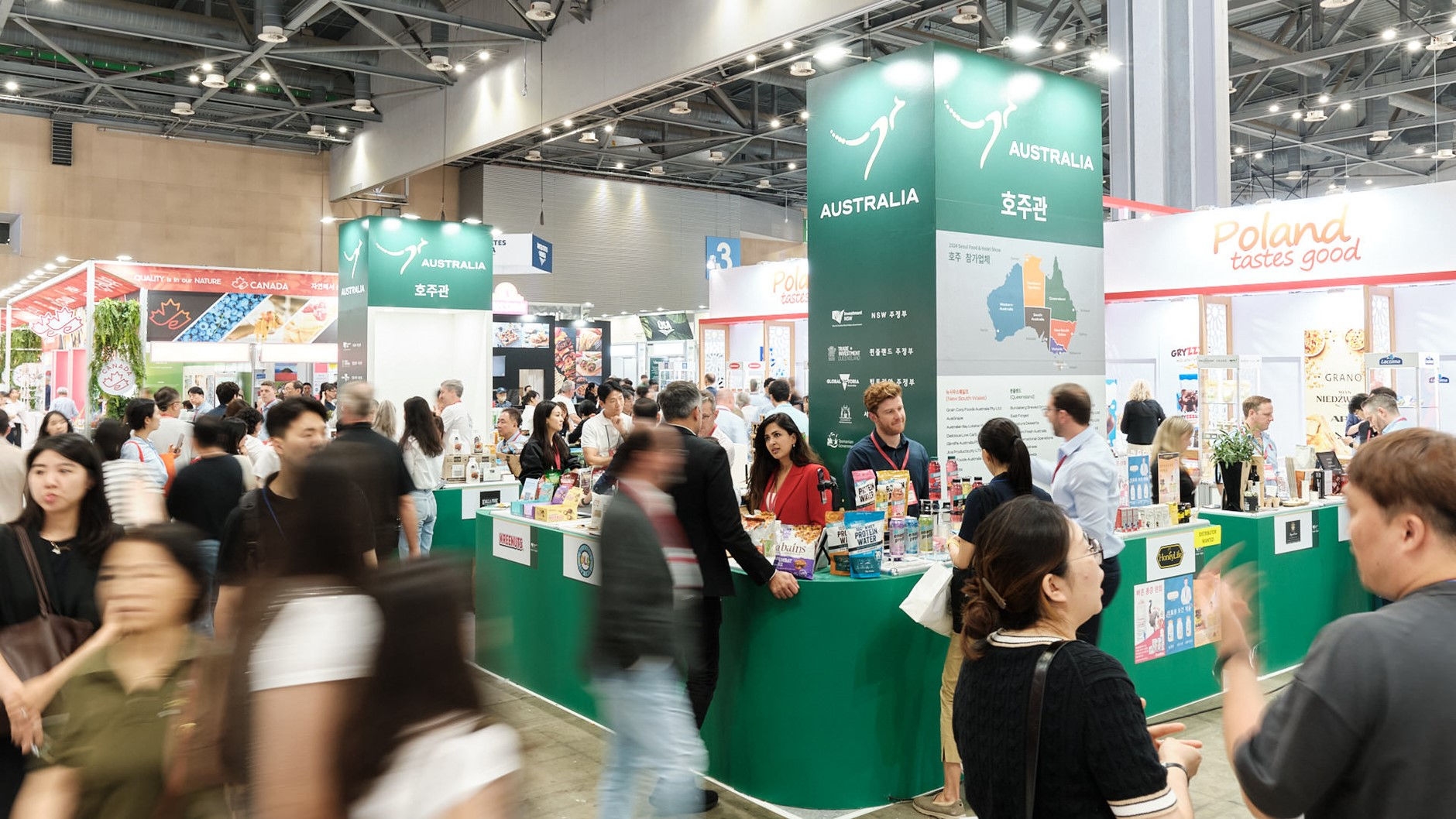Australian food and beverages were stars of the show at the recent Seoul Food and Hotel exhibition.
Seoul Food and Hotel is the largest business-to-business trade show in Korea, attracting more than 40,000 visitors each year.
The Australian pavilion was one of the largest at the trade show. It was also one of the most popular. Austrade welcomed more than 10,000 walk-in visitors to the Australian pavilion and facilitated more than 300 in-person business meetings over 4 days.
Australian Ambassador to Korea Jeff Robinson and Austrade Senior Trade and Investment Commissioner for Korea Julie Quinn also visited the Australian pavilion and met with exhibitors.
This year, 46 Australian companies from 5 states showed off their premium food and beverages. They included Vitasoy, Bundaberg Brewed Drinks, Nature One Dairy, Bowan Island, Kreenuts and Bodie*Z. Products on show included packaged food, dairy, nuts, seafood, meat and more.
'Korean consumers are sophisticated and follow trends quickly,' says Heemok Cho, Business Development Manager at Austrade Korea. 'They gather product information from social media channels and young consumers often purchase products online.
'Korean consumers consider nutritional balance, healthy ingredients and the country of origin when choosing food products. The products that were popular at the show included protein water, keto cookies, chocolate balls with high protein and low sugar, organic flour and vegetable crisps.'
 The Australian pavilion was one of the most popular at Seoul Food & Hotel.
The Australian pavilion was one of the most popular at Seoul Food & Hotel. Networking, business-matching and deal-making
Austrade has been leading delegations to Seoul Food & Hotel for many years. The trade show has helped secure deals for Australian exporters.
For instance, Bundaberg's beverage products - which are popular among young consumers - can be found in major hypermarkets. Kialla Pure Foods' organic flour is used in premium bakery shops. DJ&A found a new distributor for its vegetable snacks through Austrade.
In addition to the trade show, the week-long delegate program involved a market deep dive, networking events and dinners, and business-matching events.
Celebrating a decade of KAFTA
This year's delegation was the largest since the COVID-19 pandemic. Interest in the Korean market started growing after the Korea-Australia Free Trade Agreement (KAFTA) came into force - and has not stopped.
KAFTA was signed in April 2014 and came into force in December of the same year. The agreement liberalised trade with Korea and created many new commercial opportunities for Australian businesses.
Trade in goods between Australia and Korea has more than doubled in the last decade, expanding from $19.8 billion in the 2014 financial year to $40 billion in 2023.
KAFTA has been a winner for the agrifood sector in particular, with the removal of high tariffs on meat, seafood, horticulture, and packaged food and beverages.
For example, the 40% tariff on beef is being progressively eliminated over 15 years. Beef is now Australia's largest agricultural export to Korea, worth $1.89 billion in 2023, up from $941 million in 2014. Table grape exports to Korea were worth just $17,385 in 2014, but climbed to $19.99 million in 2023, when the 45% tariff was eliminated in January 2018.






